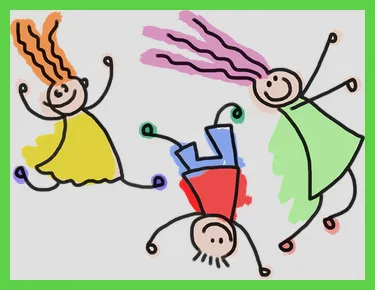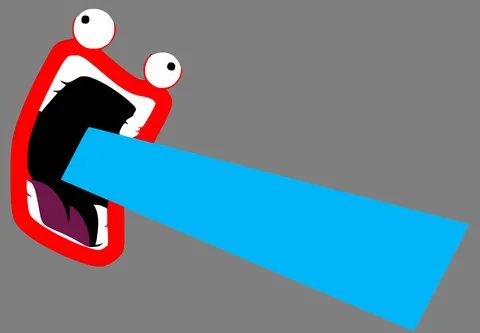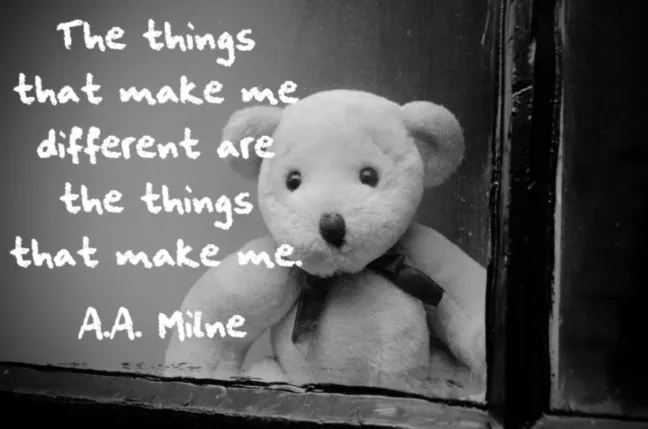
There is a child in our preschool that we seem to have difficulty working with. This child does not seem to be able to focus on an activity for any length of time. Regardless of any activity, he just can't sit still or be engaged for even two minutes. He will start walking or running around the room and will inevitably bump into someone or something. He usually upsets everyone and because of that, other children lose their concentration on a particular activity they are busy with.
The child has not been officially diagnosed, but the parents suspect that he may have what you call "Attention Deficit Disorder" or ADD.
The warning signs that you may see from any child that can be applied to ADD or ADHD (Attention Deficit Hyperactivity Disorder) are the following:
- difficulty paying attention
- difficulty following through on things
- easily distracted
- impulsive and over-active (but it's not always the case)
There are many different reasons, though, why children behave and display those symptoms. The following are four different types of behaviour of children under this category that exist in a preschool environment:
Children that are overly sensitive to their environment
If the room is too loud and noisy, children are easily distracted and will usually play up. They can be distracted by other children's movements and activities, that is why they appear to have short attention or not paying attention at all.
Children that require more sensory involvement so that they can be attentive
These children are the ones who always seem to engage in solitary play because their environment is underwhelming to them. They just choose to play by themselves in a corner and be involved in imaginative or pretend-play all by themselves, not interacting with any child at all. They are the ones who talk to themselves, retreat from the world, and live in their own la-la land.
Children that are physically very active and energetic.
They love movement and crave loud noises, hence, creating commotion wherever they go. Their sensory craving is so great that they bounce into other children causing an upset to everybody. They display similar characteristics of Tigger, the bouncy and energetic tiger of A.A. Milne's beloved Winnie the Pooh:
"the sensory seeker, the over-responder. Tigger bounces around all day, very excited, impulsive, a thrill-seeker. While funny and fun-to-be-with, Tigger might also be reckless, have decreased safety awareness, and at the end of the day is exhausting for his parents and teachers! (Sensory Tips for Tigger by Laurel Thornton)
Children who are defiant and stubborn.
As teachers, we know that we should not think of it as completely negative. These children may just be trying to control their own world because they are too overwhelmed by their surroundings. Their defiance may be just their way of trying to remain calm. However, their stubbornness actually makes them not do the task teachers expect everyone to do. For these children, classroom activities are too overloading, so they avoid doing them, instead, they seek to do their own thing.
Collaboration
Parents and teachers need to collaborate with one another to figure out the underlying issues that lead to the children's inattentiveness and hyperactivity. What is the reason behind any behaviour they are displaying? What do we do about it?
Observation is, therefore, imperative.
The child's behaviour may have something to do with their current environment, whether it fosters their attention capacity or just undermines it. The child can be too sensitive to touch and sound. Maybe in their home, it is already chaotic, that's why they find school too overwhelming for them. Teachers can help by making the child's environment at school much calmer and more regulating that they might concentrate a little better.
We also need to remember that some children may be on medication that could make them irritable. They just don't understand what they are feeling and are unable to verbalise it so they overreact to certain stimuli (e.g. sight, noise, touch) differently.
Other children may also have problem with language that's why it is difficult for them to follow instructions. It may be recommended that these children undergo speech and language therapy. There are those who have poor motor skills and may benefit from occupational therapy. In our centre, a lot of children have benefitted from these therapies. We have seen progress, not only in their cognitive and physical skills, but most importantly in the social and emotional aspects of development.
Shoutout to my sister @dynamicshine, I have mentioned this to you before about what we do in our centre when we believe the parent needs to consider booking an appointment with an OT or a speech therapist for their child.
In summary, it is therefore important to figure out why such children are hyperactive, to look at all the possible sources or causes of their behaviour, and to create a more favourable environment, whether at school or at home, to help them remain or regain their focus and attention.
References:
ADD Symptoms Vs. ADHD Symptoms: What’s the Difference?
Thoughts from our Therapists: Sensory Tips for Tigger
How about you? Do you have a child or have you ever worked with a child who may have ADD or ADHD? What are the challenges that you are facing and what strategies have you employed that work best for your child with behavioural issues?
Please leave a reply in the comment section below. I would love to know your insights. Thank you for reading and I appreciate your feedback.


 |   |
|---|

Discord banners provided by @dynamicsteemians, @steembulls, @greetersguild, @flaminghelpers, @itestify and @bearone of @teamaustralia.
I voted for @pharesim, @steemgigs, @curie, @aggroed, @quochuy, @jackmiller, @reggaemuffin, @blocktrades, @qurator, @hr1 and @ausbitbank as witnesses.
You can vote up to 30 witnesses by clicking this link:
https://steemit.com/~witnesses

https://steemit.com/~witnesses



